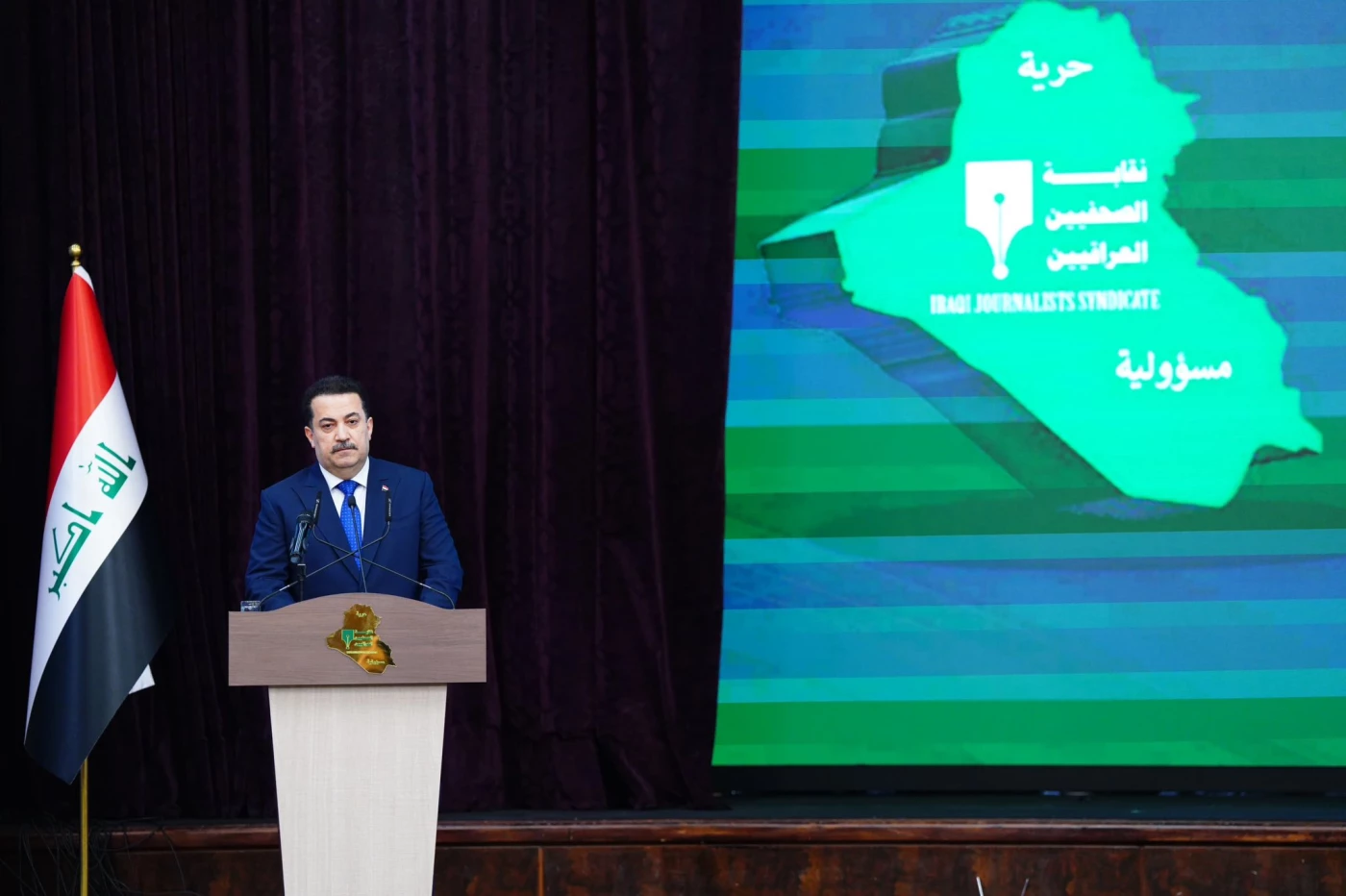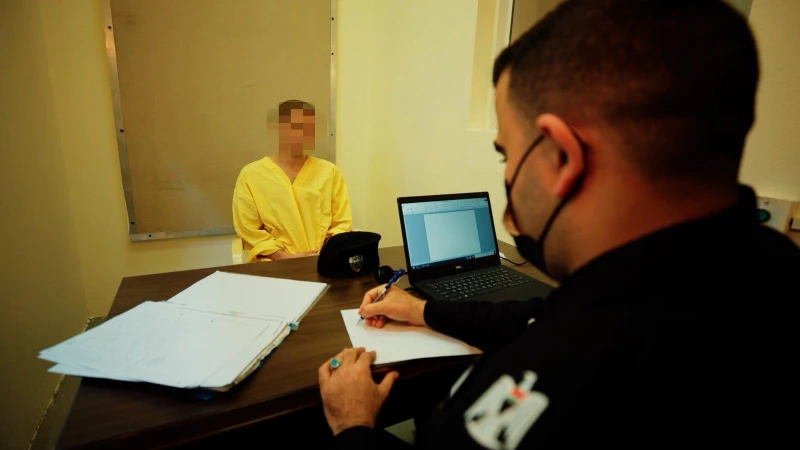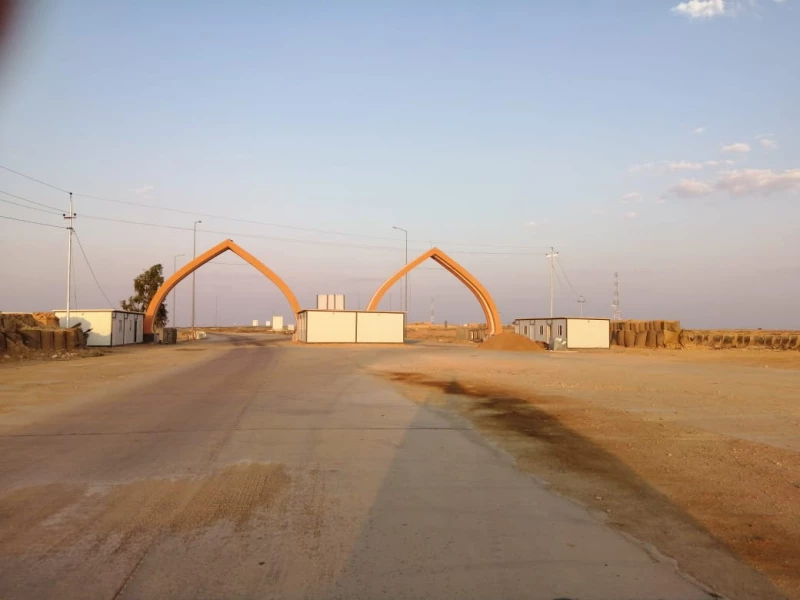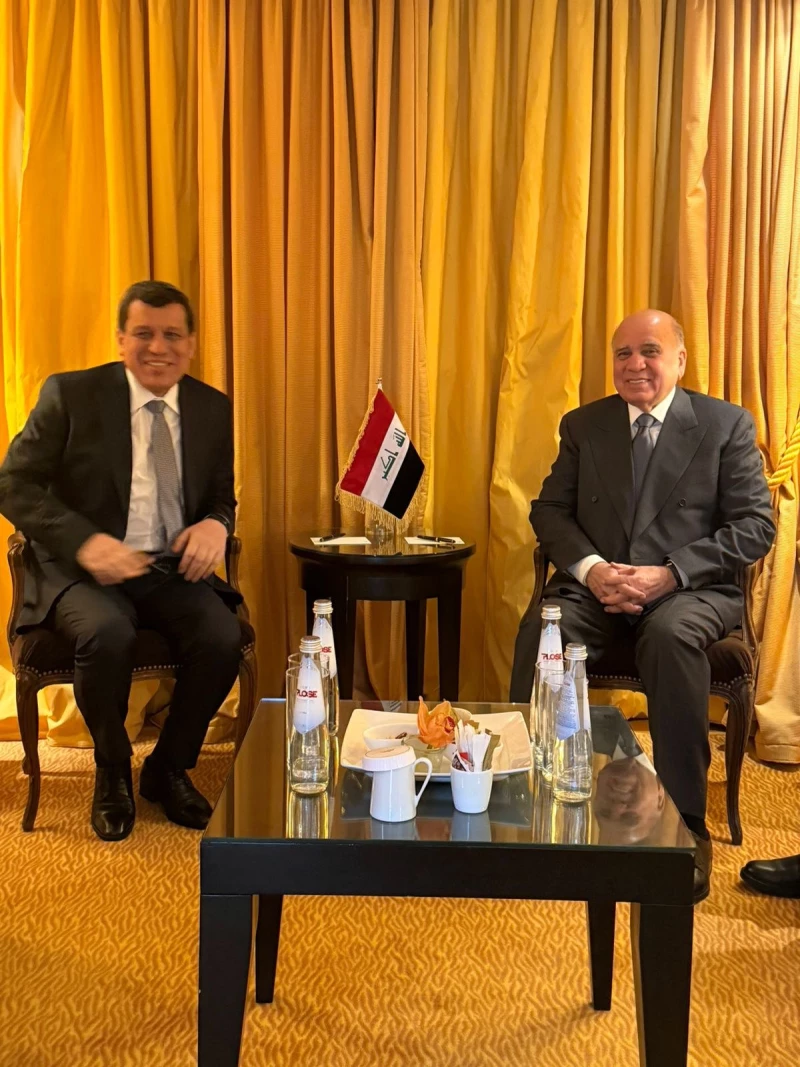As Iraqi officials commemorate the 155th national journalism day on Sunday, the country ranks 169th in press freedom out of 180 countries as per data from a press rights watchdog.
Iraqi PM Mohammed Shia' al-Sudani attended a celebration by the Iraqi Journalists Syndicate marking the 155th National Day of Iraqi Press.
In his speech, Sudani praised Iraqi and Arab journalists, commemorated the martyrs of Iraqi journalism, and honored journalists in Gaza.
He emphasized the government's commitment to improving journalists' livelihoods, including the allocation of land for a residential complex for the Journalists Syndicate as part of the Jawharat Baghdad housing project. He also highlighted the Cabinet's approval of the Right to Access Information bill.
Sudani highlighted Iraqi journalism's significant contributions to cultural development and its role in fostering political awareness.
He pointed out that journalism has played a crucial role throughout Iraq's history, particularly in defending the new Iraq and exposing terrorism.
Since 2003, many journalists have sacrificed their lives for Iraq, contributing to major battles fought by security forces against terrorism.
The Prime Minister emphasized the government's efforts to ensure that journalists can perform their duties without harassment. He expressed his pride in the absence of imprisoned journalists for their opinions and criticized platforms that undermine journalistic professionalism and mislead public opinion, which he stated harms both responsible journalism and the state.
On the other hand Reporters Without Borders (RSF) ranks Iraq 169th worldwide this year in terms of press freedom, marking a two-rank drop from last year’s 167th ranking.
Iraq's media landscape is heavily influenced by political parties, which control editorial policies.
The extreme polarization caused by political influence makes balanced and independent reporting challenging. According to RSF, "journalists face ongoing threats and struggle to defend their rights since 2019."
Many media outlets have been attacked due to their coverage of anti-corruption protests, which some political factions deem hostile, the RSF added.
Although Iraq's constitution theoretically guarantees press freedom, conflicting laws often undermine this right. Public figures frequently file defamation lawsuits against journalists, and a persistent cyber-crime bill threatens severe penalties for online posts deemed harmful to the country's interests, RSF said.
Certain institutions and religious figures remain beyond reproach, leading to media outlets facing sanctions or suspension for probing corruption involving high-ranking officials. These investigations are often accused of "violating media regulations or damaging symbols of the state."
Journalists' safety is a major concern, with many being killed by armed groups, including jihadist organizations and militias.
RSF highlighted that "such killings rarely lead to investigations and those responsible go unpunished."
Death threats and abductions are common tactics to intimidate and silence journalists, affecting both high-profile and lesser-known reporters.



 Facebook
Facebook
 LinkedIn
LinkedIn
 Telegram
Telegram
 X
X


